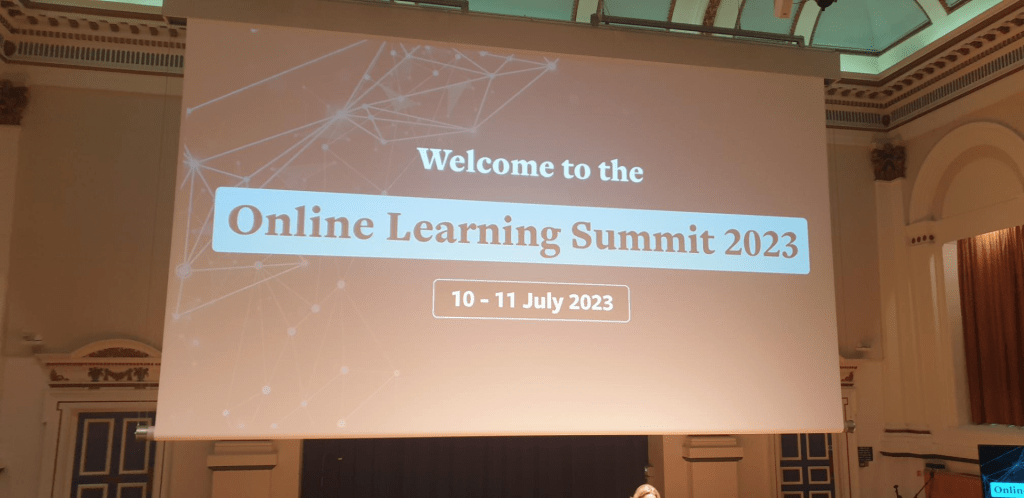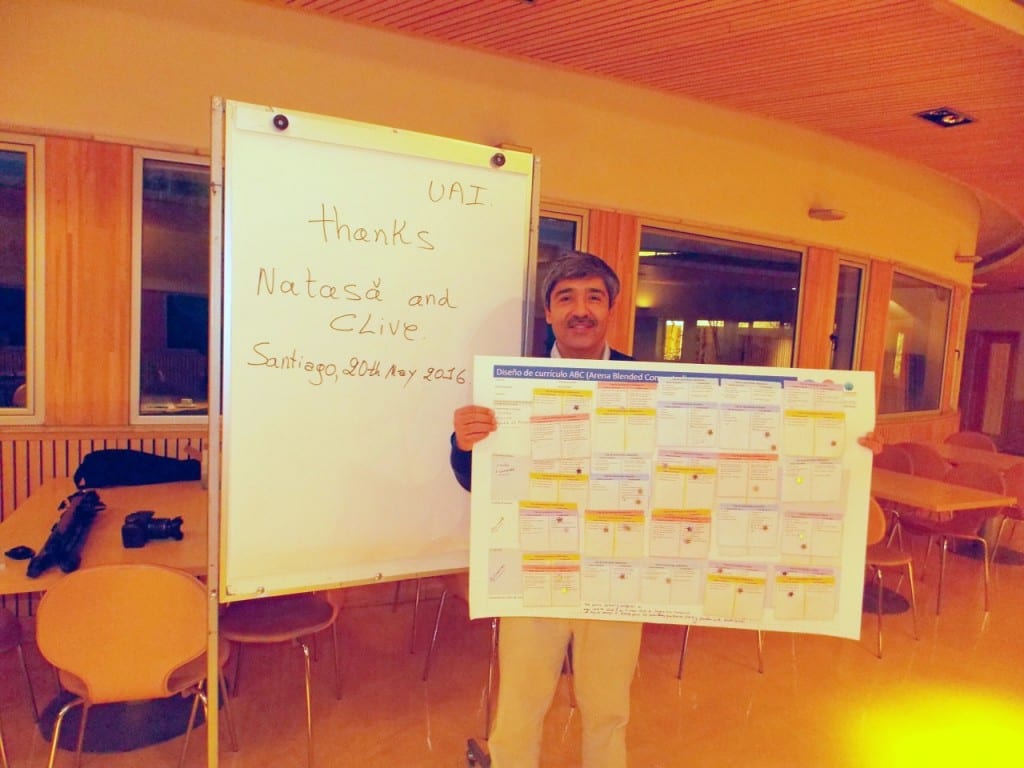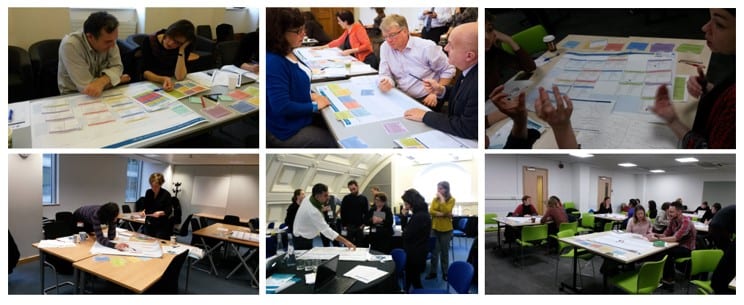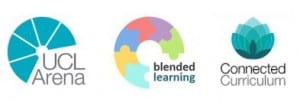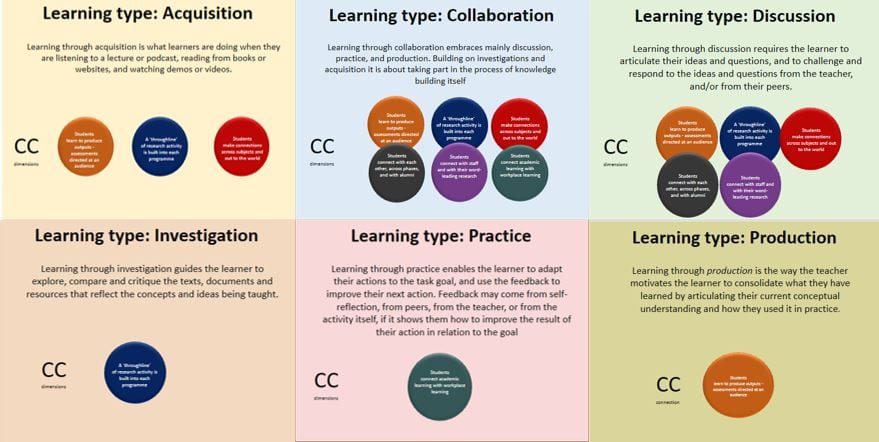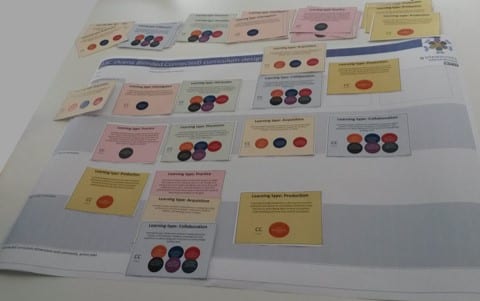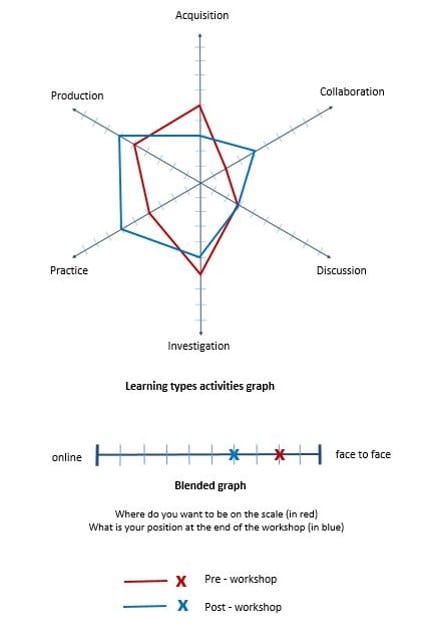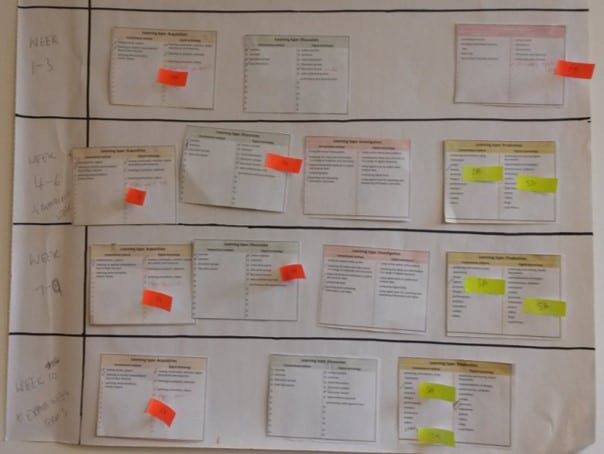Leeds Online Learning Summit 2023
By Oliver Vas, on 28 July 2023
On the 10th and 11th July, Tim Otway and I attended in-person The University of Leeds’ first ever Online Learning Summit, where we met a number of other colleagues from other institutions and went to a series of presentations throughout both days. The agenda was broad ranging, though it could roughly be categorised into three themes: creating design ecosystems, extending accessibility and enabling lifelong learning.
Firstly, we received an overview of the current outlook within HE online learning from Neil Mosley, and later from Sam Brenton, Melissa Highton and others. They spoke about witnessing steady growth in demand for online learning in the UK, as well as more rapid growth abroad. Sam Brenton mentioned that UK institutions are in a good place to take advantage of increased demand but must capitalise quickly. Neil Mosley foresaw the slow decline of MOOCs as interest intensifies in more flexible, stackable programs such as micro credentials – a topic that featured prominently in the summit. During the event participants grappled with formulating a ‘manifesto’ to standardise the regulation and awarding of micro credentials. Melissa Highton mentioned that while micro credentials still remain relatively unknown, CPD courses are the most highly searched for online. Data shows that learners typically want CPD that is badged, accredited and associated with a known brand or institution.
We also heard from educators who have enjoyed great success as online-only institutions, such as Joann Kozyrev, VP at Western Governors University, who spoke about moving away from the ‘time served’ model to great effect: allowing learners to progress once they meet the completion requirements rather than inflexible time markers. In their case, students pay a fixed fee for 6 months of learning, within which time they can take as many or as few credits as they wish.
Given the novel nature of a lot of challenges faced in the sector, the summit focused on a number of original and effective problem-solving techniques. One notable technique was Aaron Kessler’s learning engineering process which emphasised the continual need to “close the loop” between the stages of challenge, creation, implementation and investigation. We also learnt about the differences between systems thinking, design thinking and futures thinking, and participated in Leah Henrickson’s “What-if” experiment, brainstorming possible future scenarios in 5-year increments.
The summit then attempted to apply these problem-solving techniques directly to a few of the challenges, specifically: AI and ethics, the nature of assessment, and accessibility integration. Donald Clark asked whether considerations over ethics in AI are doing more harm than good. He pointed out that the more cautious countries risk falling behind unnecessarily, since regulatory efforts are unlikely to be successful. Later, a panel debated the role of assessment and whether online learning had any chance of moving away from the grade-centred approach that dominates most of the education sector. Ultimately, they concluded that assessment remains a necessary tool to show that learning has taken place. Lasty, we heard from course alumni on how accessibility had improved their course experience. They emphasised that accessibility should be embedded from the start of programme development, rather than treated as an afterthought.
Overall, the conference was well organised and successful at balancing its in-person and online audiences. The experience was greatly enhanced by the attendance of a digital artist who drew live tableaus during each talk, helping to illustrate and reinforce key concepts.
 Close
Close


